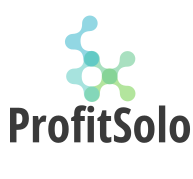What happens to Share Price after Buyback Announcement? – Pros and Cons of Buyback
A buyback of shares in the stock market refers to a process where a company repurchases its own shares from the market.
A company may choose to buy back its shares for various reasons, such as to increase the demand for its shares, improve earnings per share by reducing the number of outstanding shares, or return capital to its shareholders.
When a company buys back its shares, it reduces the number of outstanding shares in the market, which can increase demand for the remaining shares and potentially boost the share price.
The company may also decide to retire the bought-back shares, thereby reducing the number of outstanding shares and increasing earnings per share.
Shareholders who wish to sell their shares during a buyback can do so at the price offered by the company, which is usually specified in the buyback announcement.
Before we talked about, what happens to the Share Price after the Buyback Announcement? Let’s see the pros and cons of the Buyback of shares.
It’s important to note that the buyback of shares can have positive or negative impacts on the share price, and the decision to buy back shares should be based on a thorough analysis of the company’s financial position and future prospects.
In addition, the buyback of shares is subject to regulations, such as disclosure requirements and restrictions on the timing and pricing of buybacks, which vary by country.
Here are some of the pros and cons of a buyback of shares:
Pros:
- Increased demand for shares: By reducing the number of outstanding shares, a buyback of shares can increase demand for the remaining shares, potentially leading to an increase in the share price.
- Improved earnings per share: By reducing the number of outstanding shares, a buyback of shares can increase earnings per share, which can be attractive to investors.
- Return of capital to shareholders: A buyback of shares can provide an alternative to paying dividends, allowing the company to return capital to its shareholders.
- Signal of confidence: If a company is willing to buy back its own shares, it may signal confidence in the company’s financial position and future prospects, which can be positive for the share price.
Cons:
- Limited resources: A buyback of shares requires a significant amount of capital, which could be used for other purposes, such as investment in growth opportunities or reducing debt.
- Reduced financial flexibility: By using capital for a buyback of shares, the company may reduce its financial flexibility and limit its ability to respond to future business opportunities or challenges.
- Lack of investment opportunities: If a company does not have attractive investment opportunities, it may choose to buy back its own shares, which can be seen as a lack of confidence in the company’s future prospects.
- Regulatory restrictions: The buyback of shares is subject to regulations, such as disclosure requirements and restrictions on the timing and pricing of buybacks, which vary by country. The company may need to comply with these regulations, which can be time-consuming and costly.
The impact of a buyback of shares announcement on the share price can vary depending on several factors, such as the financial position of the company, the size of the buyback, and market sentiment. However, in general, a buyback of shares announcement can have a positive impact on the share price.
When a company announces a buyback of shares, it typically specifies the number of shares it intends to buy back, the maximum price it will pay for the shares, and the timeline for the buyback.
This can increase demand for the shares and reduce the number of outstanding shares, which can lead to an increase in earnings per share and a potential boost in the share price.
However, the impact of a buyback of shares on the share price can also be influenced by market sentiment and other factors, such as the company's financial performance and outlook, economic conditions, and the level of investor confidence.
If the market is bearish or investors are uncertain about the company's future prospects, a buyback of shares may have a limited impact on the share price.
It's important to note that the impact of a buyback of shares on the share price can vary depending on the specific circumstances, and investors should carefully evaluate the company's financial position and future prospects before making an investment decision.
FAQs
A share buyback announcement is a statement by a company that it intends to purchase a portion of its own outstanding shares in the market.
A share buyback announcement can potentially increase the share price by reducing the number of outstanding shares and increasing demand for the remaining shares. However, the impact of a buyback announcement on the share price can be influenced by various factors, such as the financial position of the company, market sentiment, and investor confidence.
The impact of a share buyback announcement on the share price can be influenced by factors such as the size of the buyback, the financial position of the company, market sentiment, and investor confidence.
A share buyback reduces the number of outstanding shares, which can increase earnings per share by dividing profits by a smaller number of shares.
Yes, a share buyback can be cancelled or postponed by the company for various reasons, such as changes in the financial position of the company or regulatory restrictions.
Yes, share buybacks in India are regulated by the Securities and Exchange Board of India (SEBI) and are subject to various disclosure requirements and restrictions on timing and pricing.
